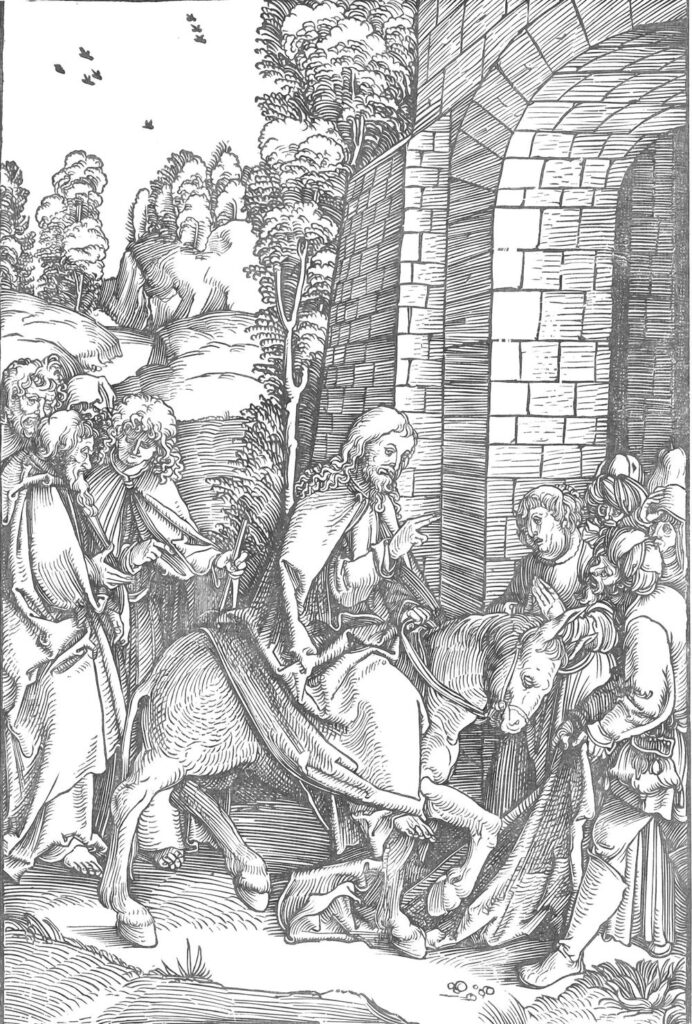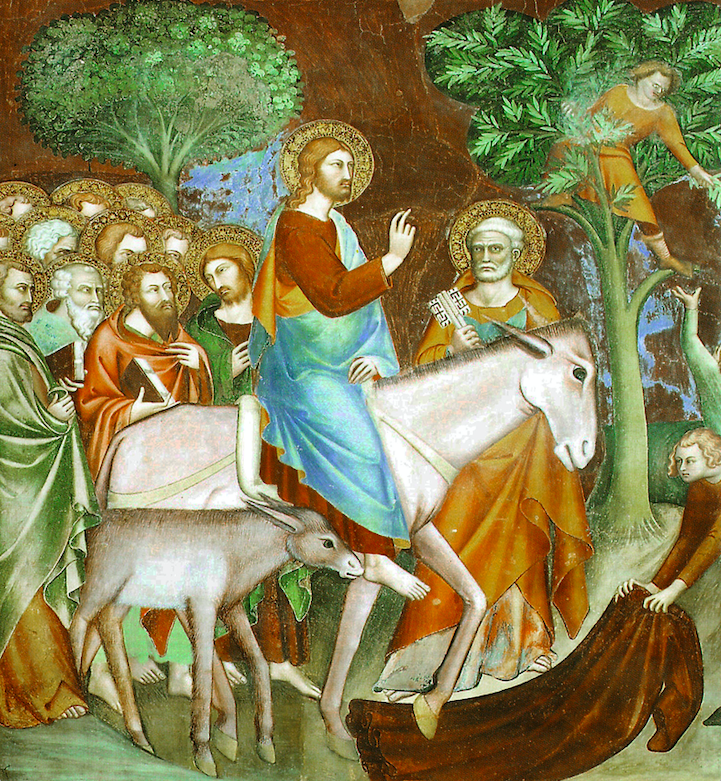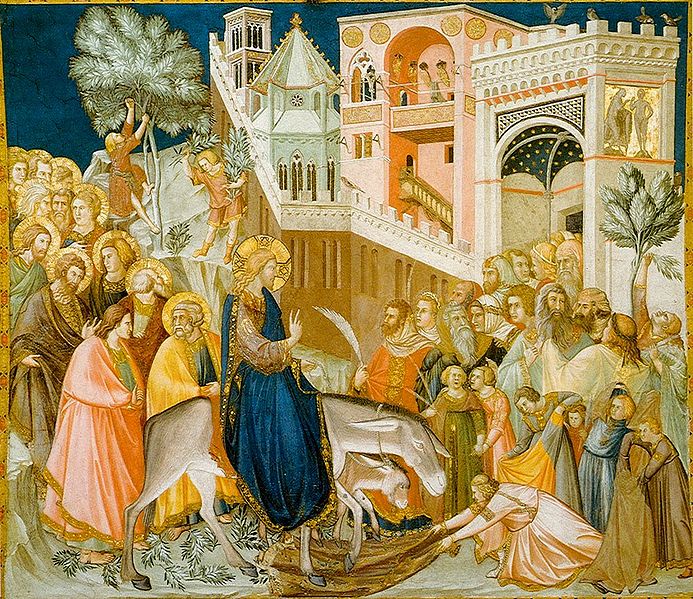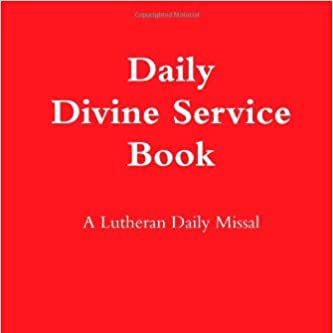“Behold, your king is coming”

On Ad te levavi, the Church opens a new season and a new liturgical year. The season, of course, is the season of Advent, a time when Christians focus on our Lord’s coming—or perhaps it would be better to say our Lord’s comings. After all, the readings of this season focus not only on our Lord’s first advent in first-century Judea but also on his second advent, when he will come again in glory to judge the living and the dead.
It is hardly a surprise, then, that the lessons for Ad te levavi focus on two different images of our Lord’s coming. The Gospel lesson from Matthew 21 focuses on one of the quintessential images of the coming Savior: our Lord Jesus’ arrival in Jerusalem on Palm Sunday, where he comes not as a great king surrounded by angel hosts but lowly, riding on a donkey. The Epistle lesson, in turn, urges Christians to consider Jesus’ second coming, casting off darkness and putting on light before our Master comes again.
With these lessons before our eyes and in our ears, Christians embark on the journey of Advent, a time when we focus our hearts and minds on our Lord’s gracious coming—in the flesh, in his Word and sacraments, and finally on the Last Day—that we might live as a people of hope, looking forward to the day when our Lord Jesus will come and we can greet him as the people of Jerusalem did on Palm Sunday, crying out, “Hosanna to the Son of David! ‘Blessed is He who comes in the name of the Lord!’ Hosanna in the highest!”

A Brief History
The celebration of Ad te levavi as the beginning of Advent and the new Church year goes back to the Middle Ages. In the Early Middle Ages, much of the Church began observing a penitential season preceding the feast of Christmas, much like Christians were accustomed to observing the season of Lent prior to the celebration of Easter. In many places, this penitential season began shortly after St. Martin’s Day, making it a forty-day season much like Lent. Over time, however, this season became shorter throughout much of the Western Church, which started marking the beginning of Advent on Ad te levavi a bit later in the Middle Ages.
While the old season of Advent had been closely connected to St. Martin and his feast, this newer, shorter penitential season instead came to be tied to St. Andrew since Ad te levavi falls on the Sunday closest to St. Andrew’s Day. This connection came to expression in an old rhyme:
Saint Andrew the king,
Three weeks and three days before Christmas comes in;
Three days after, or three days before,
Advent Sunday knocks at the door.
While the name for this first Sunday in Advent might seem a bit bewildering to some, it actually follows a relatively straightforward historical pattern in the Western Church. Much like Invocabit, Lætare, and Quasimodogeniti, Ad te levavi gets its name from the first words (known as the incipit) of that Sunday’s introit: “To you I have lifted up my soul, O Lord”. This comes from the habit of many in the medieval Church, who would distinguish the Sunday’s of the Church year by the first words of the first prayer that you are likely to see in a missal for that day, the introit.

Collect
Stir up, we beseech Thee, Thy power, O Lord and come: that by Thy protection we may be rescued from the threatening perils of our sins and saved by Thy mighty deliverance; who livest and reignest with the Father and the Holy Ghost: ever one God, world without end. Amen.
Lessons
Resources
Issues, Etc. interview with the Rev. Dr. Ken Schurb on the season of Advent
Issues, Etc. interview with the Rev. David Petersen on Ad te levavi
Propers found in Daily Divine Service Book: A Lutheran Daily Missal, edited by the Rev. Heath Curtis
References:
1. Blackburn, Bonnie and Leofranc Holford-Stevens. The Oxford Companion to the Year. Oxford University Press. 1999.
Images:
1. Entry into Jerusalem, Hans Schäufelein, Germany, 1506–1507.
2. Christ’s entry to Jerusalem, Lippo Memmi, Italy, ca. 14th century.
3. Christ’s entry into Jerusalem, Pietro Lorenzetti, Italy, ca. 13th century.
Some links might be affiliate links which means we may receive a small commission at no extra cost to you. As an Amazon Associate we earn from qualifying purchases.




[…] the start of the Advent season on Ad te levavi and Christians’ increased focus on the coming(s) of Jesus, many traditions have become associated […]